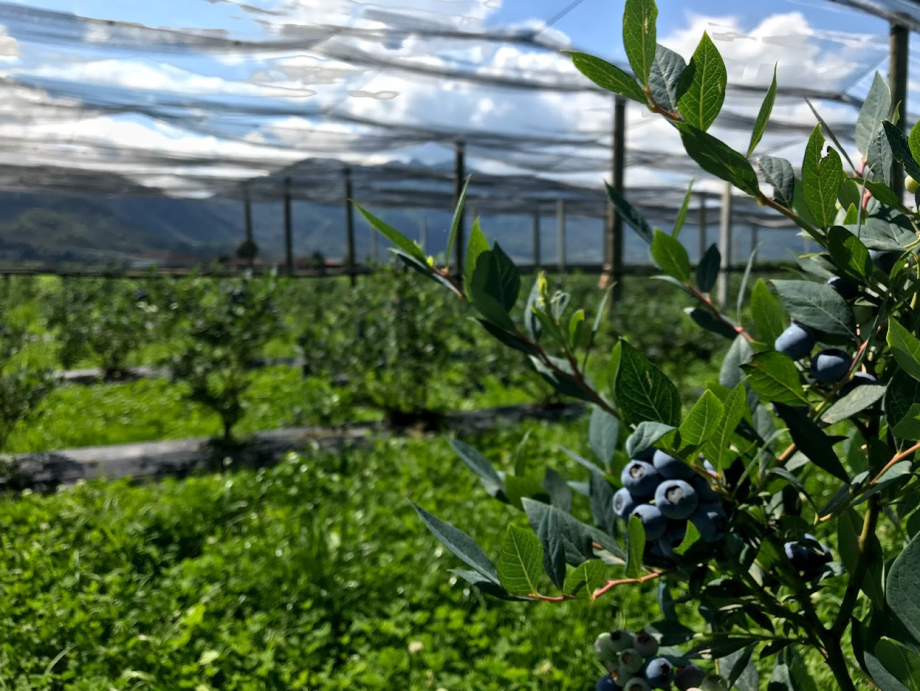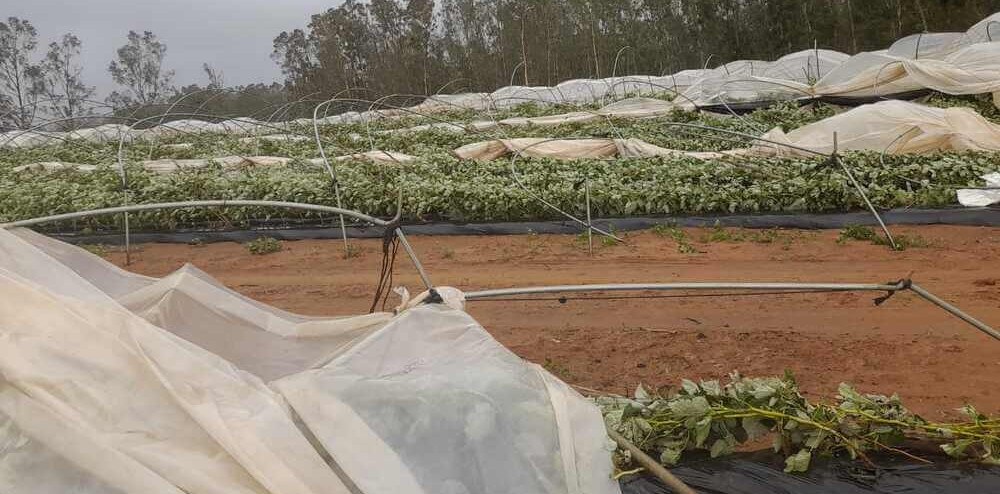The province of Cuneo represents a significant portion of the national production with over 500 hectares of blueberry plants. MeltingPot, an editorial and social communication project born in 1996 that tells and analyzes the processes of transformation of the migration phenomenon in Italy and Europe, has analyzed the critical issues generated by the management of the workforce employed in the harvesting and processing of blueberries in Piedmont.
In the Saluzzo region, blueberry harvesting
is an activity that usually takes place from mid-June to early July, limited to a few intense days when employers seek a large number of workers.
The sunny rows on the slopes of Monviso host a diverse workforce composed of people from various nations, including Mali, Gambia, Ivory Coast, Burkina Faso, as well as China, Pakistan, Albania, and some young Italians.
Payment can vary from 5.50 to 8 euros per hour, depending on the type of agreement each worker can secure with the employer.
Farmers find themselves in a difficult position, caught between the demands of the global market that impose strict timelines and rules and the challenge of finding enough labor to cover the short blueberry harvesting period.
In essence, this is a complex and delicate context in which international economic dynamics intersect with the need to find sustainable solutions for managing local agricultural labor.

In the Gazzetta di Saluzzo from a few years ago, it reads:
"While in the Mediterranean area, the seasonality of blueberry consumption is linked to the summer period, there is a British market that consumes small fruits all year round. They import them in winter from South America and then from European countries: first Spain, then Italy, and then Poland. In the national context, Alp blueberries are usually early and are harvested and distributed from mid-June to the end of July.
"Blueberries have often replaced plots of peaches and kiwis, becoming a profitable investment over time."
In the province, over 500 hectares are cultivated, with more than half in the Saluzzo/Pinerolo area, which accounts for 25% of national production. About forty medium-sized companies have sprung up under Monviso.
There are also, especially in hilly areas, a myriad of small and medium-sized producers (almost 400) who supply cooperatives and producer organizations, which in turn are the connecting link with large retailers and European markets.
In recent years, there has been a significant increase in the cultivated area for blueberries in the Saluzzo area, leading to an earlier start to the harvesting season, which now extends into July.
This change is particularly evident in the extensive open-field plantation in the area, which is primarily geared towards export. In fact, 80% of the production is destined for foreign trade.
It should also be considered that blueberries represent a product that has seen significant growth in the local agricultural sector in recent years and has been introduced into the production portfolio of Saluzzo's farmers due to high demand and good profitability in the international market.
The increasing popularity of this fruit has led farmers to invest in its cultivation and extend the harvesting season to fully exploit its economic potential.
It is a highly relevant agro-industrial sector that generates millions of euros in turnover, and therefore production costs must be carefully managed.
In this context, efficiency in organizing labor is crucial to maximize yields and ensure competitive production.
According to Melting Pot, however, "it is indeed known in advance how many workers are needed, but most laborers in this early period do not have a contract or are recruited 'last minute' through cooperatives, agencies, or other informal intermediation methods. Strictly on-call. Does the apparent lack of planning by companies hide a strategy to suppress wages? Thinking negatively may be unfair, but who knows..."
The publication thus denounces a real context of worker exploitation, where workers are often relegated to difficult and irregular situations.
"So, let's talk about exploitation," continues the article, "exploitation not as a mere crime, but as an engine of the capital accumulation process. To speed up operations and incentivize productivity, in many cases, workers are offered piece-rate wages, one euro per crate for blueberries."
"Comprensibile, certamente, specie sul piano individuale. Ma onestamente problematico dal punto di vista collettivo" (Understandable, certainly, especially on an individual level. But honestly problematic from a collective point of view).
"The clash over the pace of work is one of the main points of friction between laborers and employers, and slowing down productivity is a possible driving force for this working class, still unknown in its strength."
Finally, according to the editorial, some of the issues also arise from the organizational perspective of accommodations themselves, which do not facilitate the workers in any way:
"In this early part of the season, the so-called accommodations, coordinated by the Prefecture of Cuneo (containers and the cemetery house of the municipality of Saluzzo with around 230 beds) and managed by a cooperative, are mostly kept closed."
"It may seem like a paradoxical choice since, in the absence of alternatives, a portion of workers and aspiring workers, between 25 and 100, are forced to camp in public gardens in Parco Gullino, which has become a landing and socialization place for a few years, monitored day and especially night by law enforcement."
Source: Melting Pot Europa








